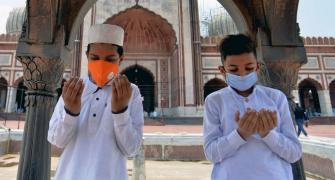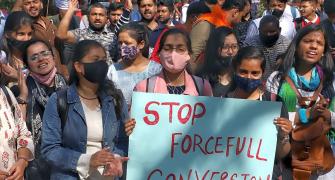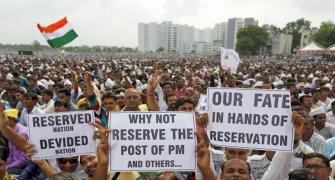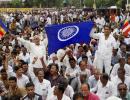What is the effect of the report of a commission of inquiry that has been rejected or not accepted by the government, and whether the empirical data which formed the basis of the report can be looked at while determining a constitutional issue, the Supreme Court wondered on Wednesday while considering the question of quotas for Dalit Muslims and Dalit Christians.
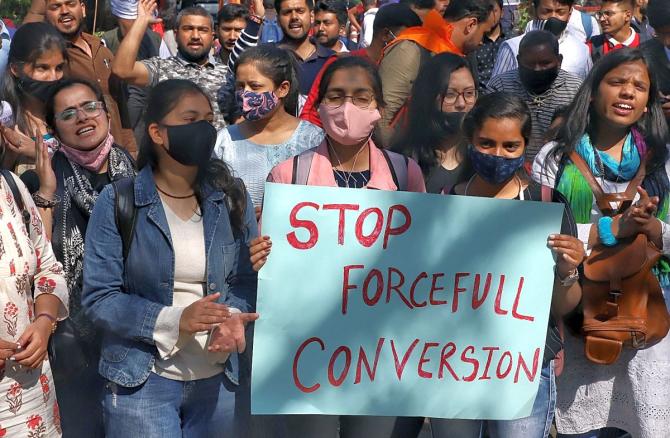
The court referred to the report of the Rangnath Mishra Commission which had recommended including Dalit Muslims and Dalit Christians in the Scheduled Caste list. The government has not accepted the report, calling it "flawed".
The apex court was hearing pleas, including those which have alleged that the Constitution (Scheduled Castes) Order, 1950 is discriminatory and violative of Articles 14 (equality before law) and 15 (prohibition of discrimination on grounds of religion, race, caste etc) of the Constitution as it discriminates against Scheduled Caste converts to religions other than Hinduism, Sikhism and Buddhism.
The Constitution (Scheduled Castes) Order, 1950, as amended from time to time, says no person professing a religion other than Hinduism, Sikhism and Buddhism shall be deemed to be a member of a Scheduled Caste (SC).
A bench headed by Justice S K Kaul was told by advocate Prashant Bhushan, appearing for one of the petitioners, that the government has not accepted the 2007 report of Justice Ranganath Misra Commission, which had recommended inclusion of Dalit Christians and Dalit Muslims in the Scheduled Castes list, and has formed a new commission headed by former Chief Justice of India K G Balakrishnan.
"Now, they (government) are saying that they have appointed another commission. There is more than enough material on the basis of which the court can proceed. Should this court wait again and again for the government to appoint a commission? There is no reason for this court to await the report of the commission," Bhushan insisted before a bench, also comprising Justices A Amanullah and Aravind Kumar.
Additional Solicitor General (ASG) K M Nataraj, appearing for the Centre, said the commission headed by Justice Balakrishnan is doing its work and relevant material and data have to be collected.
"There was Justice Ranganath Misra Commission. It gave its report and you, in your wisdom, said you do not accept it. You constituted another commission. Should we wait till the commission responds?" the bench asked.
Nataraj, while referring to a previous judgment of the apex court, said a categorical study is needed and the court should await the response of the new commission constituted to go into the issue.
Senior advocate C U Singh, appearing for another petitioner, contended merely saying the government has appointed another commission means nothing.
"What will be the status of the report of a commission of inquiry which is not accepted by the government?" the bench asked.
"My question is, if a report is not accepted, what is the status of findings in the report or the empirical data? Can we rely on the empirical data from a report which is not accepted to deal with the constitutional issue raised?" Justice Kaul wanted to know.
The bench also asked can a writ be issued to include something in the Presidential Order.
Bhushan, who said the pleas were filed way back in 2004, contended the petitioners have placed on record several authoritative studies apart from the fact that Justice Misra commission went through the material and gave its report.
The bench observed the petitioners are seeking to say that over a period of time, there may be different commissions and there are political considerations as well.
"The problem is that almost two decades have gone by," the bench said, adding the government has not accepted the report of the Justice Misra commission and many commissions have faced a similar scenario.
"The apprehension is, how many commissions of inquiry will be set up?" it said.
Nataraj read out the terms of reference of the new commission and said Justice Misra commission had not gone into all the aspects.
"Probably you need to check the report. You are making too generalised a statement on a report. The report is not that perfunctory," the bench said.
It observed social stigma and religious stigma are different things and social stigma may continue even after a person has converted to another religion.
"We cannot shut our eyes when we are considering constitutional questions," the bench observed.
During the arguments, Bhushan said in January 2011, the apex court had referred to three constitutional issues which arose in the matter, including whether a Scheduled Caste person professing a religion different from Hinduism, Sikhism and Buddhism can be deprived of the benefit of Paragraph 3 of the Constitution (Scheduled Castes) Order, 1950, in violation of Articles 14, 15, 16 and 25 of the Constitution of India.
"There is no difficulty in examining a constitutional question. But what would be the effect if the government does not accept the report of a commission," the bench wondered.
Bhushan said the government accepting or not accepting the report is not material.
"Another issue that has been flagged is what is the effect of report of a commission of inquiry which is rejected or not accepted by the government. Whether the empirical data which formed the basis of the report can be looked into....," the bench said, adding that these aspects require a debate.
It posted the matter for resumed hearing on July 11.
In its reply filed earlier in the apex court on one of the pleas, the Centre had said The Constitution (Scheduled Castes) Order, 1950 does not suffer from any "unconstitutionality" and the exclusion of Christianity and Islam was due to the reason that the "oppressive system" of untouchability was not prevalent in either of these two religions.
The government had told the top court it has not accepted the report of the Justice Ranganath Misra Commission as it was "flawed".
The Centre had last year appointed a commission headed by former CJI K G Balakrishnan to examine giving SC status to new people who claim to have "historically" belonged to the SCs but have converted to a religion other than those mentioned in the Presidential Orders.
One of the pleas has sought reservation for converted Dalits on the same footing as is extended to the Scheduled Castes following Hinduism, Buddhism, and Sikhism.

